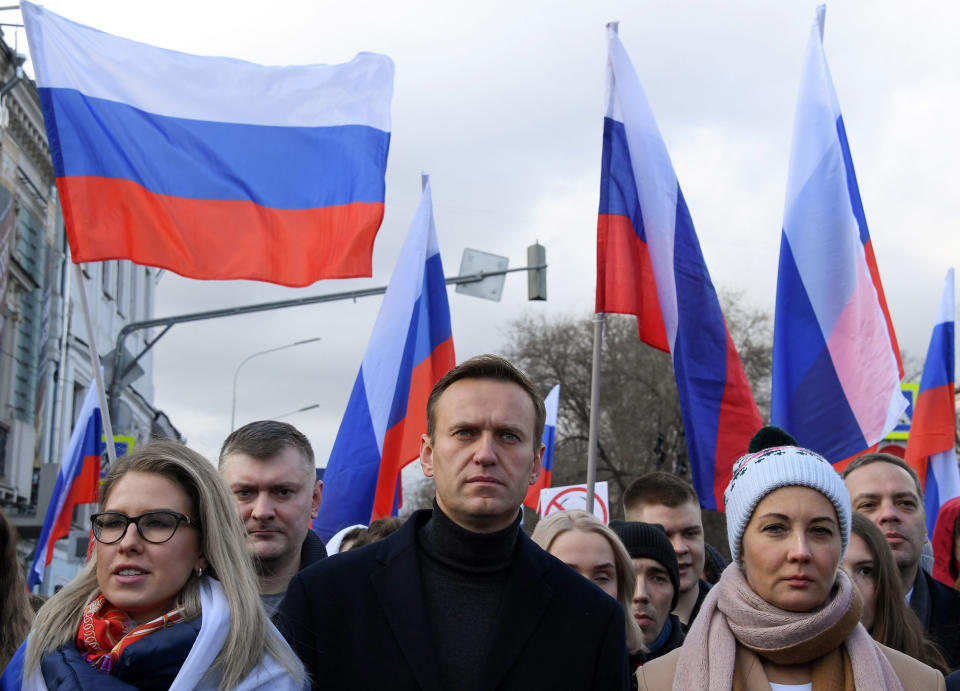Russian opposition leader out of coma as condition improves after poisoning
The Russian opposition activist Alexei Navalny is no longer in a medically induced coma and his condition has improved, German doctors said Monday, more than two weeks after he was poisoned with a nerve agent.
The German government said Navalny was poisoned with Novichok, a substance developed by the Soviet military during the Cold War. Pressure has mounted on the Russian government to explain how one of its fiercest critics came to be sickened with a military-grade neurotoxin, becoming seriously ill while on a Russian flight from Siberia to Moscow last month.
Navalny "has been removed from his medically induced coma and is being weaned off mechanical ventilation," said a statement from Berlin's Charité hospital, where Navalny was moved after pressure from his family and supporters who said he was not safe in Russia.
"He is responding to verbal stimuli," the hospital said, although adding that "it remains too early to gauge the potential long-term effects of his severe poisoning."

Navalny has been one of the Kremlin's most high-profile critics of the past decade.
His poisoning has been condemned by leaders around the world, among them German Chancellor Angela Merkel who called it "attempted murder" and an "attempt to silence him."
Later Monday, British Foreign Secretary Dominic Raab summoned Russia's ambassador to the United Kingdom, Andrei Kelin, "to register deep concern about the poisoning" of Navalny. Raab tweeted, "It's completely unacceptable that a banned chemical weapon has been used and Russia must hold a full, transparent investigation."
As with other poisonings over the years, Russian officials have denied any involvement, and suggested the allegations are part of a Western disinformation campaign. Russian authorities have said that the first tests conducted on Navalny while he was still in Russia found no poison in his system.
In 2018, then-British Prime Minister Theresa May said it was "highly likely" Russia was behind the poisoning of the Russian double agent Sergei Skripal, again with Novichok, in the historic English city of Salisbury.
A British inquiry also found that Russian President Vladimir Putin "probably" personally sanctioned the 2006 murder of Alexander Litvinenko, a former KGB agent turned outspoken Kremlin critic. He died in London after drinking green tea laced with polonium-210, a potent radioactive isotope.
The Russian government denied any involvement in both incidents.

